For many dog owners, the quest for a truly indestructible dog toy feels like a never-ending saga. You purchase a new toy with high hopes, only to watch your furry friend dismantle it within minutes, leaving you with a sigh of desperation. We understand this frustration intimately, both as dog owners ourselves and as caretakers for a pack of enthusiastic dogs at Benafim Dog Shelter. We’ve put hundreds of toys to the test, and our most discerning critics – our dogs – are here to share their honest feedback.
We acquired five toys that claim to be “indestructible” and subjected them to rigorous testing by our resident experts: Nero, Max, Maya, Black Nero, Jean, and Pebbles. These brave canine testers spent a week chewing, playing, burying, and generally putting these toys through their paces. Their verdict? Read on for the unfiltered truth about what’s hot and what’s not in the world of durable dog toys.
Nylabone Extreme Tough Dog Chew Toy: A Champion Chewer’s Delight
The Nylabone Extreme Tough Dog Chew Toy, in a Bison flavor and XXL size, is specifically designed for powerful chewers weighing over 23kg. Nero, our 9-year-old Pitt Bull, spent hours with this toy, barely leaving a mark. Its substantial size is offset by a manageable weight for dogs to carry, and the slightly curved design provides an easy grip for satisfying chewing sessions.
Even Maya, a 3-year-old rescue who was initially timid, took an immediate liking to this toy. She enthusiastically chewed it and enjoyed running with it, even engaging Max in a game of chase. The Nylabone is also remarkably easy to clean and, crucially, retains its flavor indefinitely. For owners who dislike mess and odor, this toy is a dream, offering no smell or residue whatsoever.
Black Nero, known for his powerful chewing habits and a tendency to chew through even robust materials when anxious, also found his match in this Nylabone. Despite his destructive tendencies, the toy remained intact after extensive chewing, and he clearly enjoyed the challenge.
Gallery of Dogs Enjoying the Nylabone
-
 Komo playing with Nylabone
Komo playing with Nylabone -
 Nora with the Nylabone
Nora with the Nylabone -
 White Nero chewing the Nylabone
White Nero chewing the Nylabone
Key Details
- Flavor: Bison (also available in chicken and turkey)
- Features: Raised bristles to aid dental cleaning
- Dimensions: 30.48 x 13.97 x 5.08 cm
- Weight: 485 grams
- Recommended for: Dogs over 23 kg
Summary
Our shelter dogs wholeheartedly recommend the Nylabone Extreme Tough Dog Chew Toy. It’s an excellent choice for dogs who love to chew, get bored easily, and need a durable and tasty challenge. This toy stands out as one of the best durable dog toys for aggressive chewers.
KONG Rewards Ball: A Playful Treat Dispenser
The KONG Rewards Ball initially garnered mixed reactions, but its appeal quickly grew among our testers. This clever toy combines playtime with a treat-dispensing mechanism, offering hours of amusement. Loading treats was straightforward, and the dogs found it easy to work for their rewards.
While the treat-dispensing feature was appreciated, the dogs were particularly drawn to the ball’s soft, bouncy texture. Jean, for instance, adored the KONG Rewards Ball, spending hours chewing it before burying it and rediscovering it later. His friend Komo was often left wanting more!
Across the board, from large Jambo to small Star, every dog engaged with the KONG Rewards Ball. No tooth marks were evident, and the treats were successfully dispensed, confirming its effectiveness as a simple yet engaging treat toy. This toy is a great option if you’re looking for interactive dog toys.
Gallery of Dogs Engaging with the KONG Rewards Ball
-
 Nora with the KONG Rewards Ball
Nora with the KONG Rewards Ball -
 Jean playing with the KONG Rewards Ball
Jean playing with the KONG Rewards Ball -
 Baldo with the KONG Rewards Ball
Baldo with the KONG Rewards Ball -
 Star playing with the KONG Rewards Ball
Star playing with the KONG Rewards Ball -
 Jambo playing with the KONG Rewards Ball
Jambo playing with the KONG Rewards Ball
Key Details
- Dimensions: 12.7 x 12.7 x 12.07 cm
- Weight: 417 grams
- Recommended for: Dogs 16 kg and above
Summary
The KONG Rewards Ball is a well-rounded toy that combines two of dogs’ favorite activities: play and food. It’s a durable and tough toy that withstands vigorous chewing and interactive play, while also serving as an effective treat dispenser.
CyunCmay Indestructible Dog Toy XL Bone: Durability Concerns
The CyunCmay Indestructible Dog Toy XL Bone generated significant initial excitement, but this was short-lived, particularly when Black Nero took hold of it. While he enjoyed the toy’s soft, pliable rubber for about 30 minutes, engaging in tug-of-war and fetching it from the lake, its durability was quickly called into question.
Our fears about its soft, bendy material were realized as Black Nero’s powerful chewing left significant teeth marks, nearly splitting the bone in two. Although other dogs like Pebbles also played with it, the toy’s inability to withstand strong chewing makes it unsuitable for dogs with aggressive tendencies. This toy is not among the strong dog toys for aggressive chewers.
Gallery of Dogs with the CyunCmay Bone
-
 Jean with the CyunCmay Bone
Jean with the CyunCmay Bone -
 Nora with the CyunCmay Bone
Nora with the CyunCmay Bone -
 Kilo with the CyunCmay Bone
Kilo with the CyunCmay Bone -
 Jean with the CyunCmay Bone
Jean with the CyunCmay Bone -
 Pebbles with the CyunCmay Bone
Pebbles with the CyunCmay Bone -
 Pebbles with the CyunCmay Bone
Pebbles with the CyunCmay Bone -
 White Nero with the CyunCmay Bone
White Nero with the CyunCmay Bone
Key Details
- Dimensions: 32.9 x 12.2 x 3.8 cm
- Weight: 330 grams
- Material: TPR environmentally friendly material
- Features: Surface designed to help clean teeth
Summary
Despite being advertised as strong and durable, the CyunCmay bone did not hold up to our dogs’ chewing. While it provided short-term fun, it’s not recommended for dogs who are vigorous chewers. If you’re seeking a toy for retrieval and short bursts of play, it might suffice, but don’t expect it to last.
HETOO Indestructible Squeaky Dental Care Dog Toy: Lacking Appeal
The HETOO Indestructible Squeaky Dental Care Dog Toy, primarily designed for dental cleaning, failed to impress our canine testers. Even the squeaky feature, which usually sparks excitement, was met with indifference or even fear, as Maya demonstrated by initially hiding from the noise.
To boost engagement, we inserted peanut butter into the grooves, which held Maya’s interest for a few minutes before she lost interest. Unfortunately, this toy did not elicit much enthusiasm from any of our dogs.
Gallery of Dogs with the HETOO Toy
-
 Black Nero with the HETOO Toy
Black Nero with the HETOO Toy -
 Maya with the HETOO Toy
Maya with the HETOO Toy
Key Details
- Material: Natural rubber
- Dimensions: 12.7 x 12.7 x 12.07 cm
- Weight: 417 grams
Summary
The HETOO toy did not engage our dogs or hold their attention for long. Only Black Nero and Maya showed minimal interest, and even that was very brief. This toy does not stand out as a good option for keeping dogs entertained.
KONG Wobbler Interactive Treat Dispensing Dog Toy: A Wobbly Success
The KONG Wobbler presented a hilarious initial reaction from our dogs, likely due to its substantial size and unusual shape. Unlike other KONG treat toys made of rubber, this one is constructed from a harder plastic polymer. Humans found it easy to fill via the twist-off lid.
Our dogs initially struggled to figure out how to get the treats out, especially on the uneven surface of their kennels. However, once placed on a smooth floor and with appropriately sized treats, the KONG Wobbler became a hit. Its large size also makes it difficult for dogs to pick up and chew, potentially increasing its durability. Our dogs deemed it indestructible and easy to use, although humans need to ensure the treat size is compatible with the dispenser hole.
Gallery of Dogs Interacting with the KONG Wobbler
-
 Komo with the KONG Wobbler
Komo with the KONG Wobbler -
 Kilo with the KONG Wobbler
Kilo with the KONG Wobbler -
 Climber with the KONG Wobbler
Climber with the KONG Wobbler -
 Pebbles with the KONG Wobbler
Pebbles with the KONG Wobbler
Key Details
- Material: Plastic polymer
- Dimensions: Diameter 13 x 19 cm
- Weight: 485 grams
- Recommended for: Dogs 12 kg plus
- Capacity: Up to 250 grams of treats
Summary
Once our dogs understood its function and humans optimized the surface and treat size, the KONG Wobbler was a resounding success. Its size makes it less prone to chewing damage, and our dogs found it both indestructible and user-friendly. This is a great interactive toy for dogs.
The Final Verdict from Our Canine Connoisseurs
After extensive testing and deliberation (accompanied by much barking and tail-wagging), our shelter dogs have reached their consensus on these five “indestructible” toys.
| Brand & Item | Features | Flavor | Material | More Details |
|---|---|---|---|---|
| Nylabone Extreme Tough Dog Chew Toy, Monster Bison Bone, XXL | Extremely tough. Cleans teeth. Perfect for chewers. | Bison | Tough, durable nylon | Click For Price |
| KONG – Rewards Ball – Ultra Durable Interactive Treat Dispensing Dog Toy | Dispenses treats, great for dogs who love to play. | N/A | Long-lasting Kong rubber | Click For Price |
| KONG Wobbler – Interactive Dog Toy for Treat Dispensing | Can be stuffed, dishwasher proof. | N/A | Long-lasting Kong rubber | Click For Price |
The Nylabone Extreme Tough Dog Chew Toy stands out as a top choice for dedicated chewers. The KONG Rewards Ball and KONG Wobbler offer excellent interactive fun and mental stimulation. While the CyunCmay and HETOO toys provided some initial amusement, their lack of durability and appeal means they don’t quite make the cut for truly indestructible options.

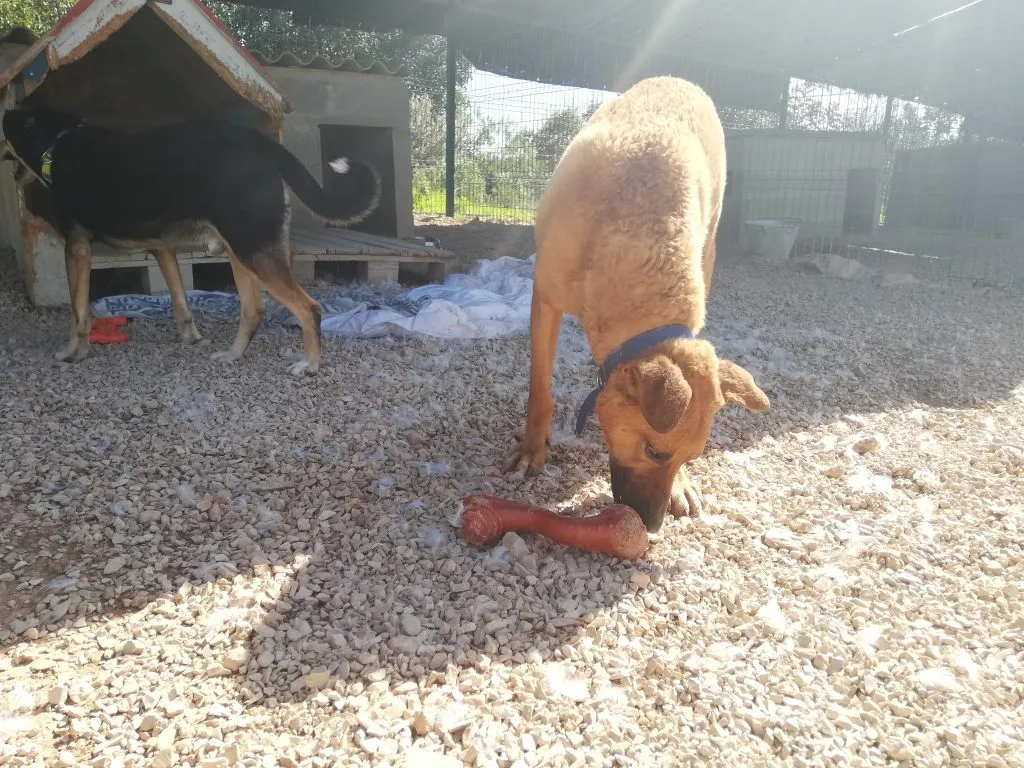
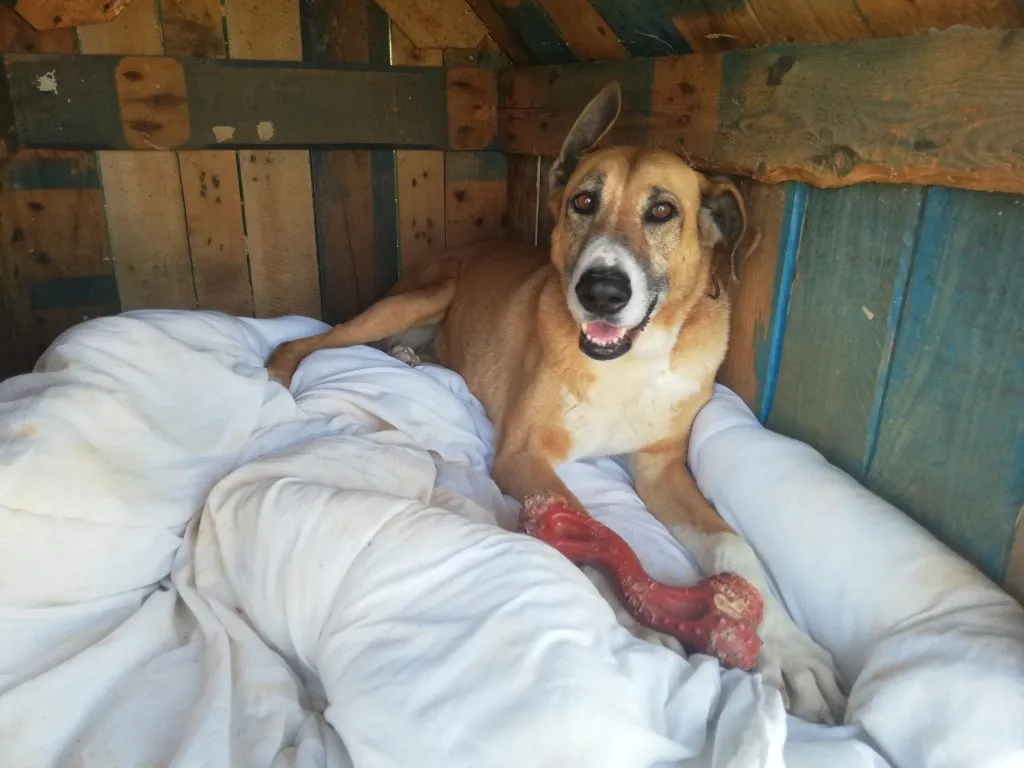 Nora with the Nylabone
Nora with the Nylabone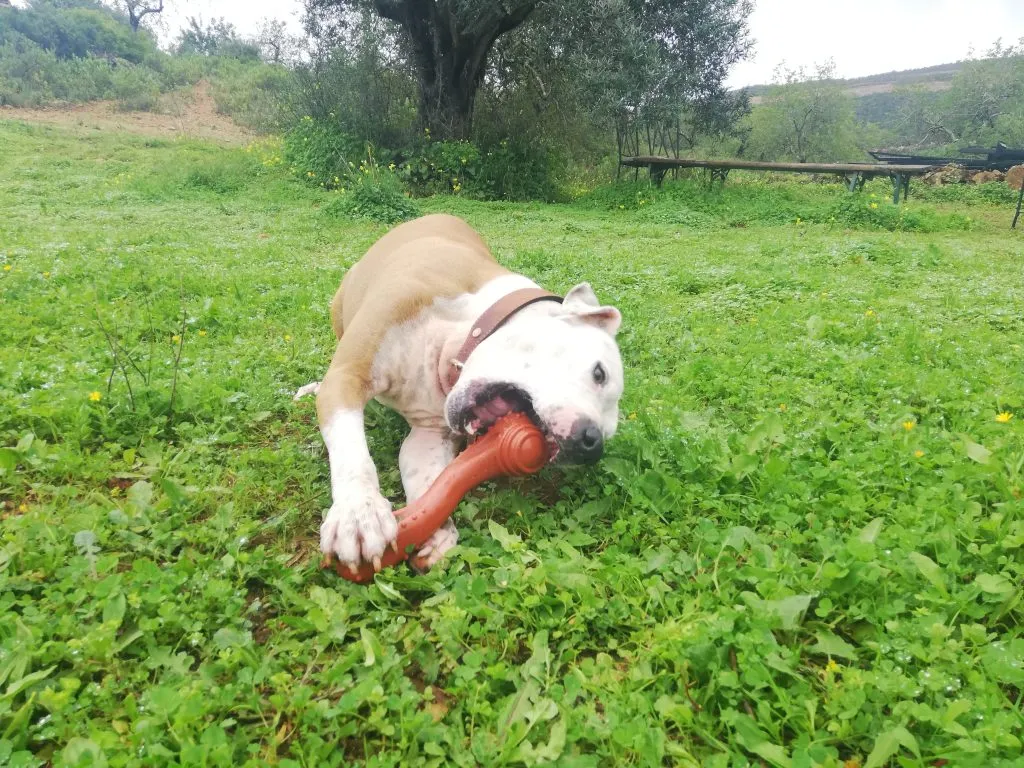 White Nero chewing the Nylabone
White Nero chewing the Nylabone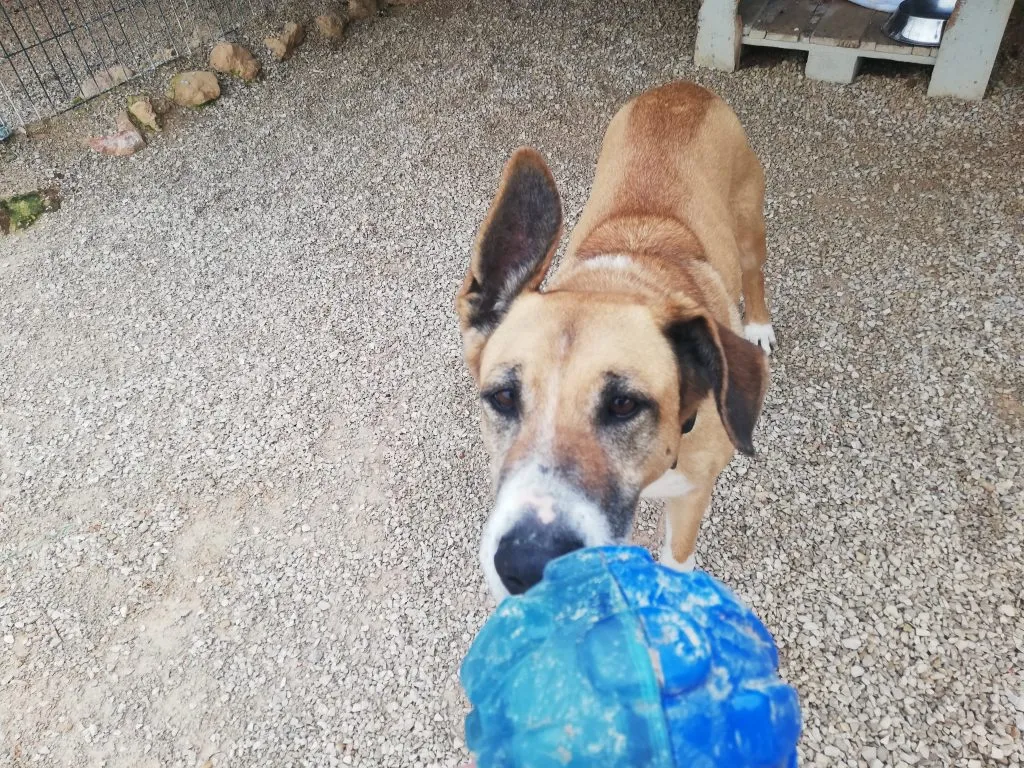 Nora with the KONG Rewards Ball
Nora with the KONG Rewards Ball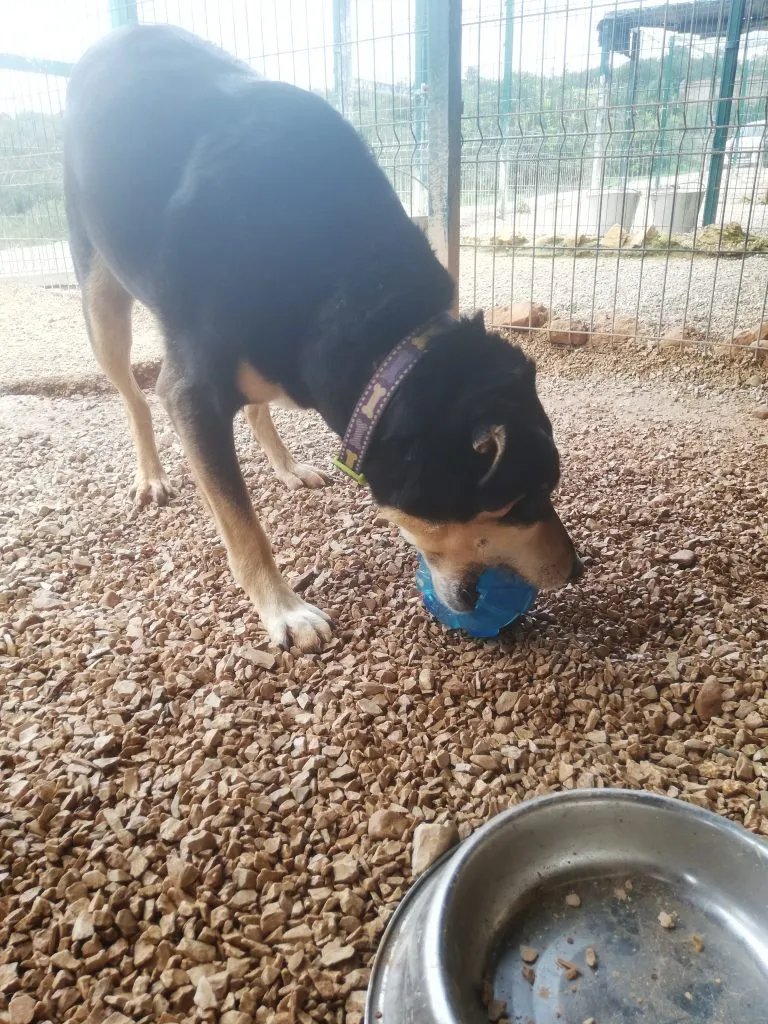 Jean playing with the KONG Rewards Ball
Jean playing with the KONG Rewards Ball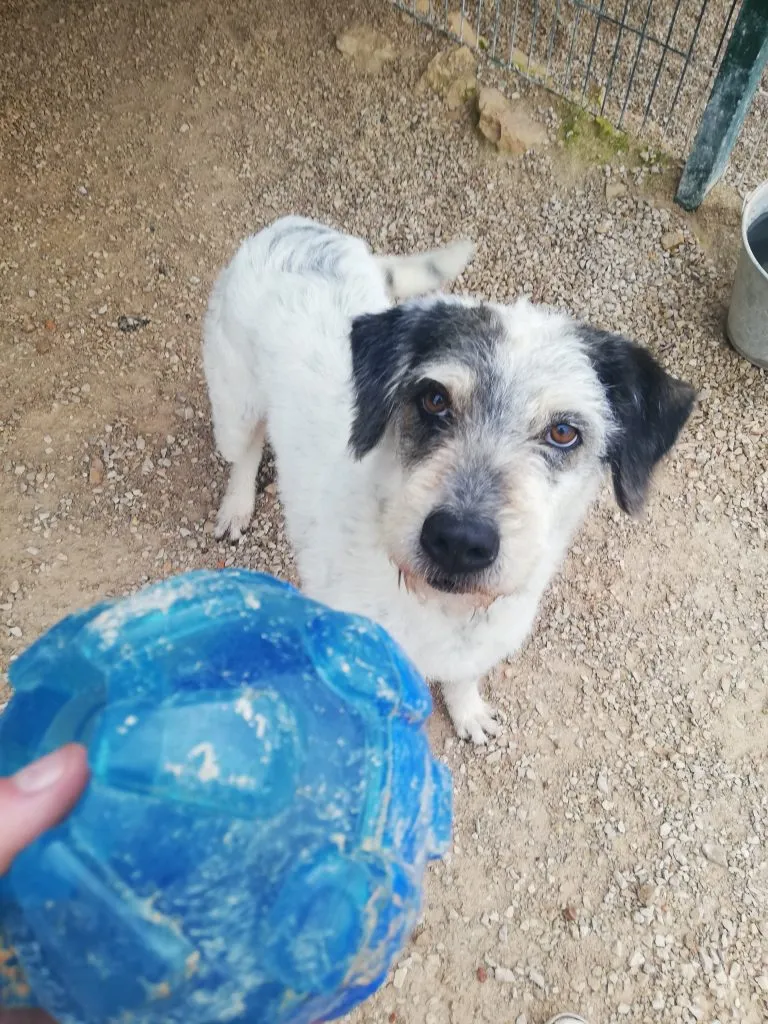 Baldo with the KONG Rewards Ball
Baldo with the KONG Rewards Ball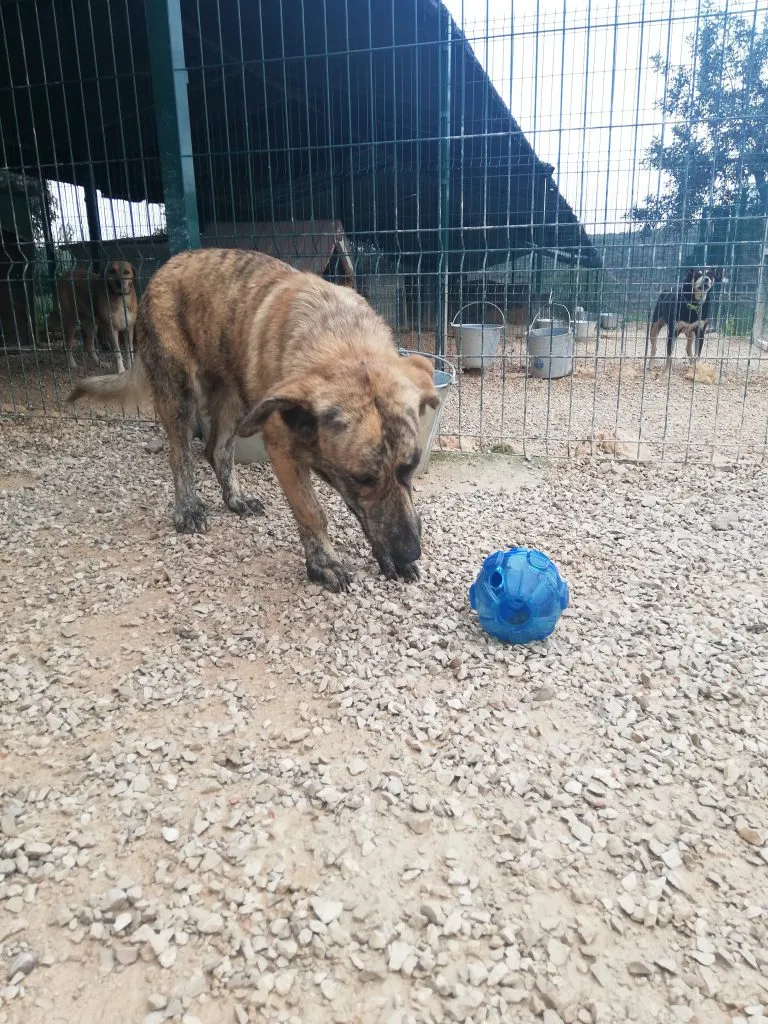 Star playing with the KONG Rewards Ball
Star playing with the KONG Rewards Ball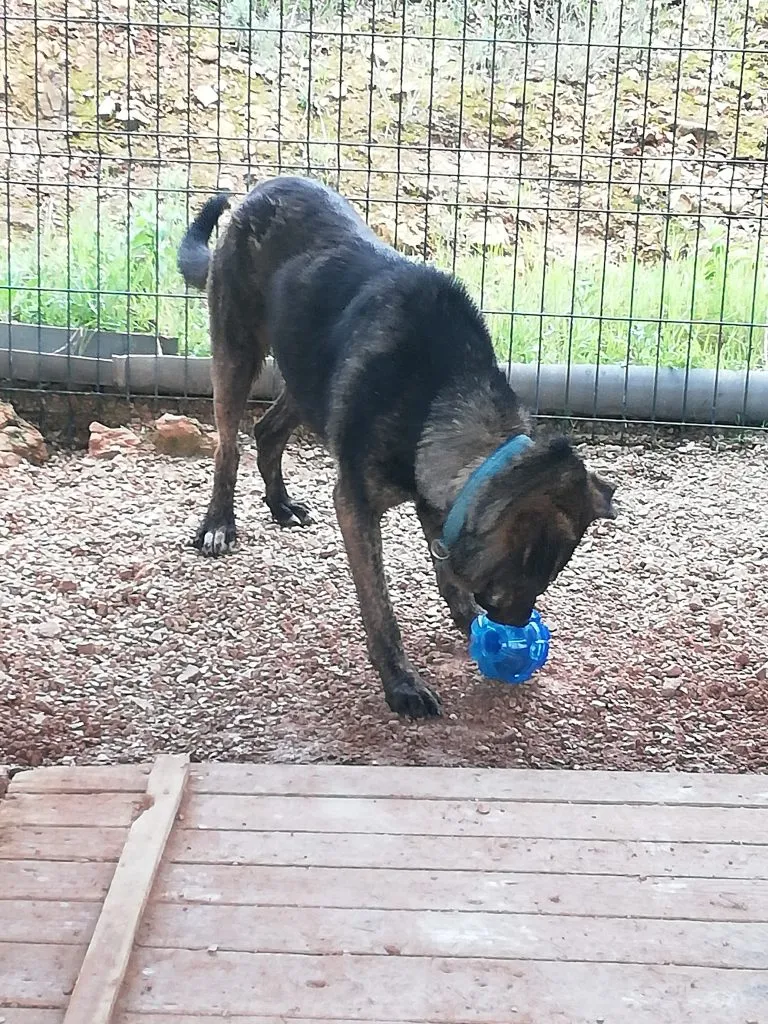 Jambo playing with the KONG Rewards Ball
Jambo playing with the KONG Rewards Ball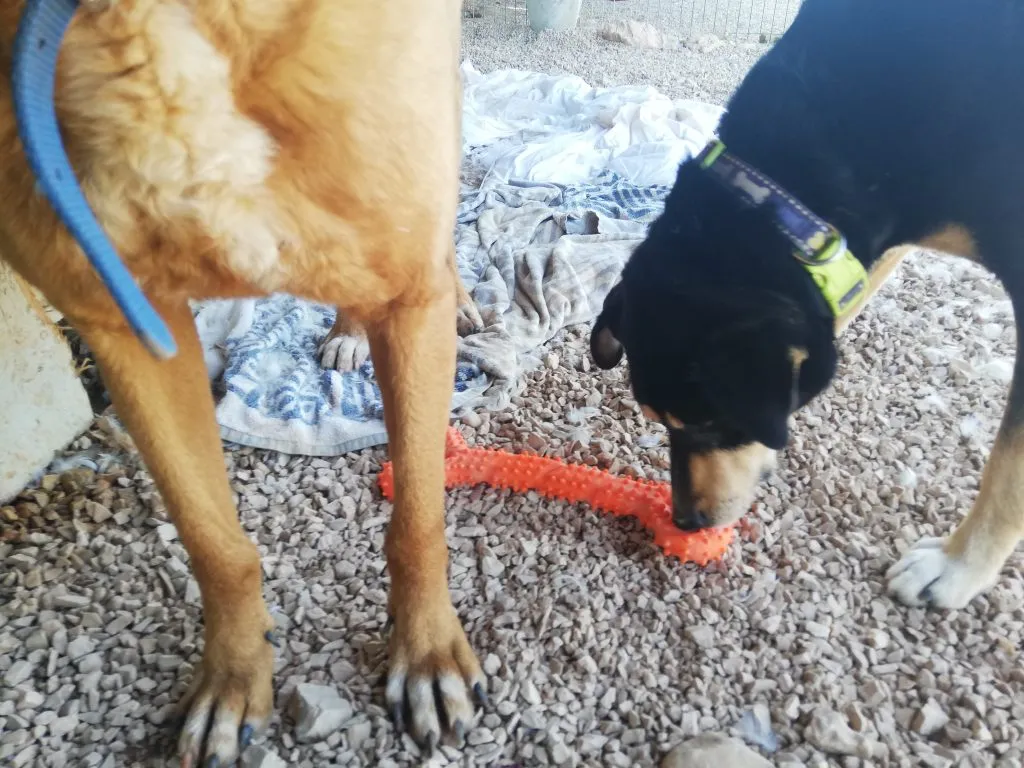 Jean with the CyunCmay Bone
Jean with the CyunCmay Bone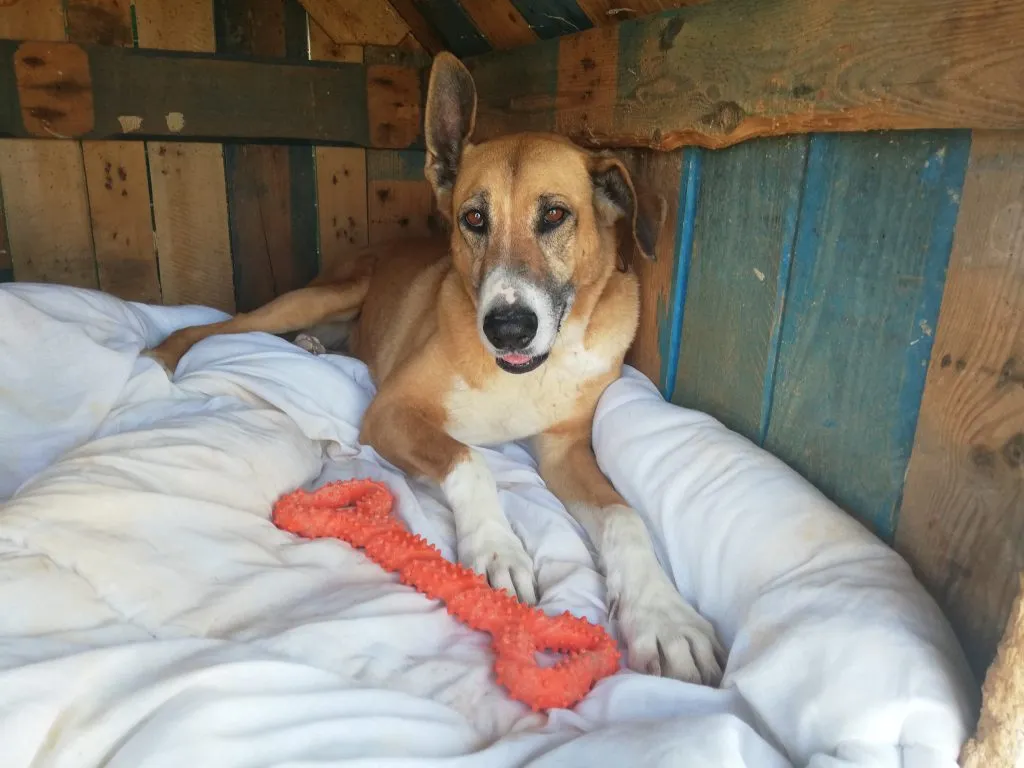 Nora with the CyunCmay Bone
Nora with the CyunCmay Bone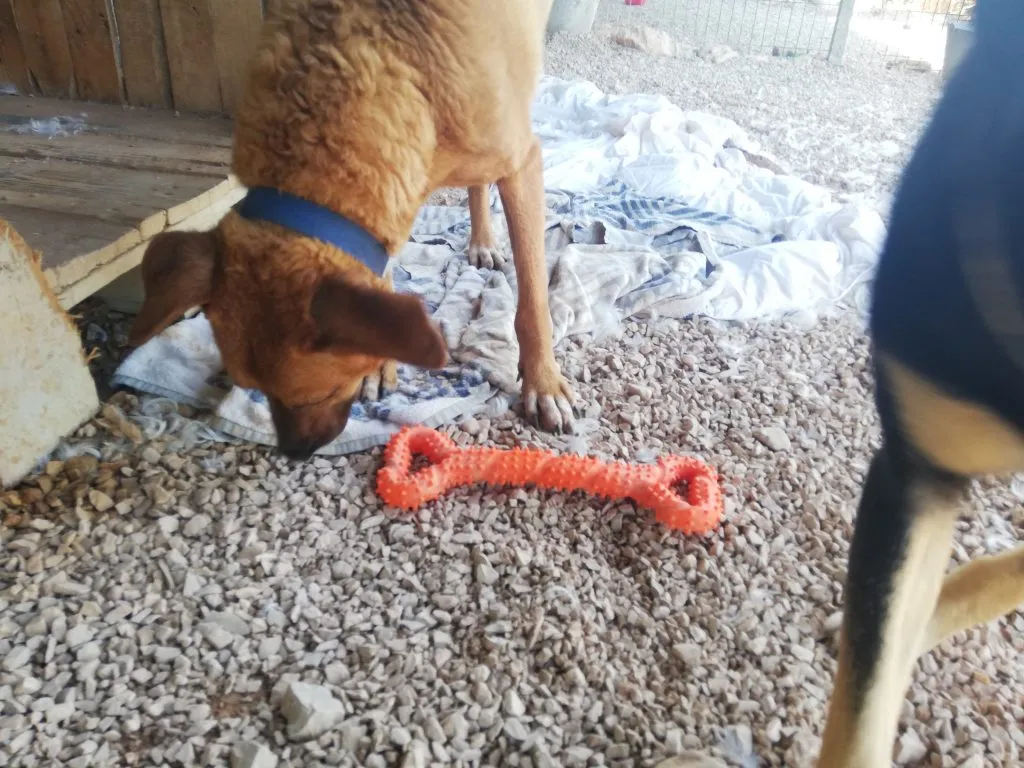 Kilo with the CyunCmay Bone
Kilo with the CyunCmay Bone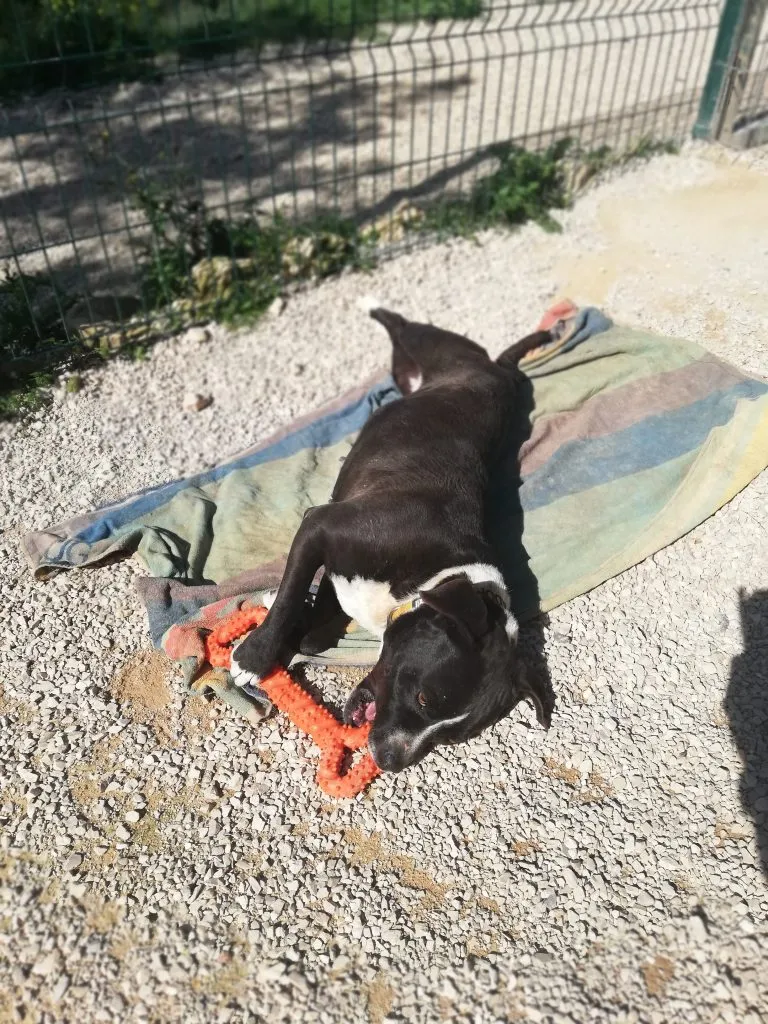 Pebbles with the CyunCmay Bone
Pebbles with the CyunCmay Bone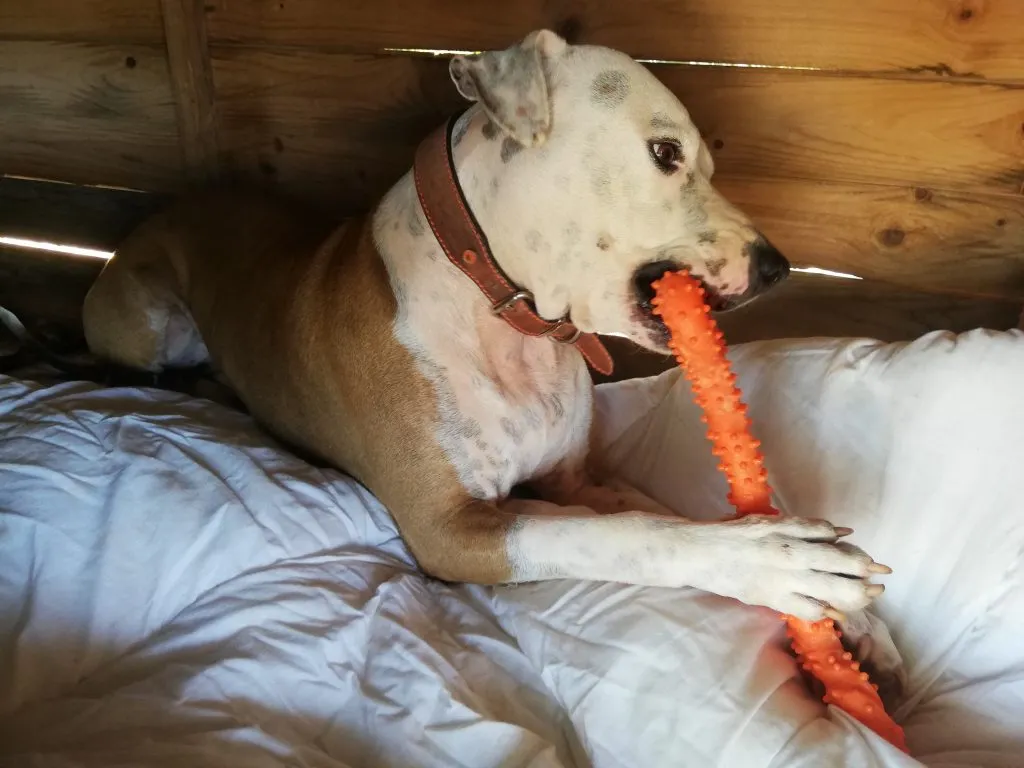 White Nero with the CyunCmay Bone
White Nero with the CyunCmay Bone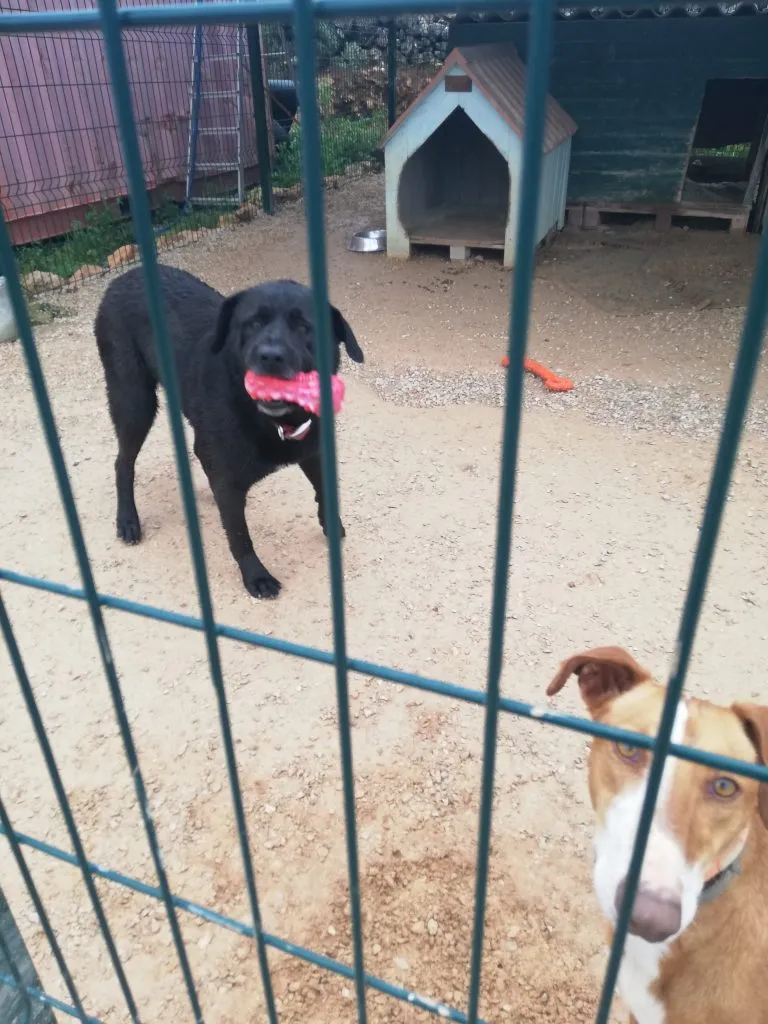 Black Nero with the HETOO Toy
Black Nero with the HETOO Toy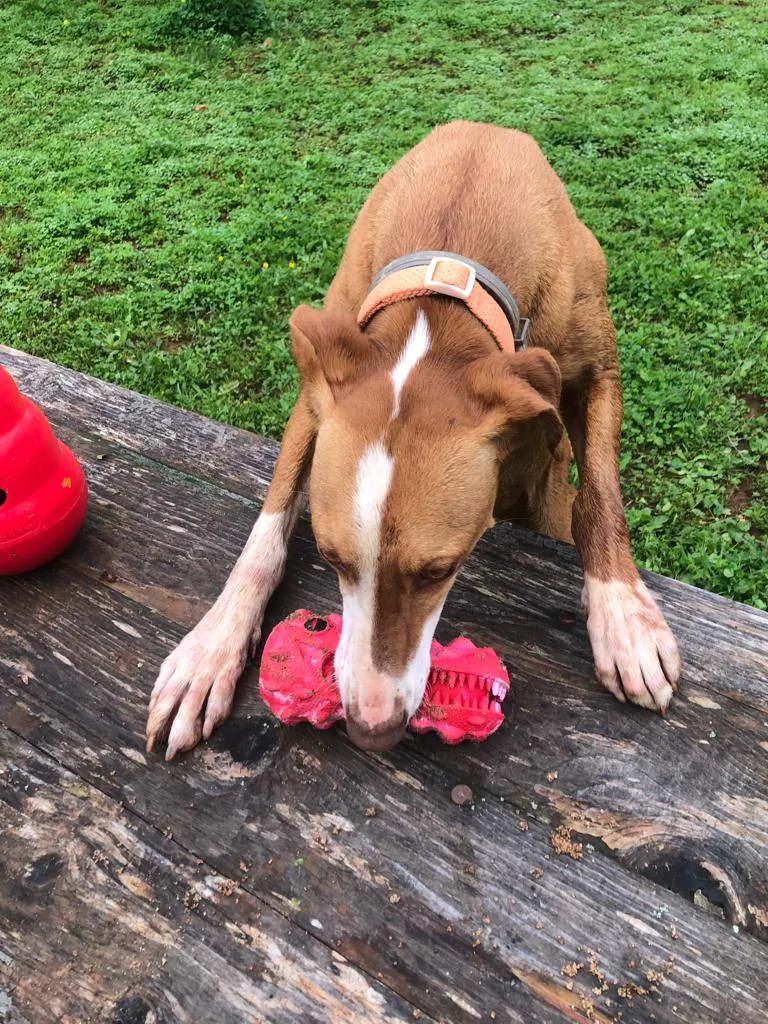 Maya with the HETOO Toy
Maya with the HETOO Toy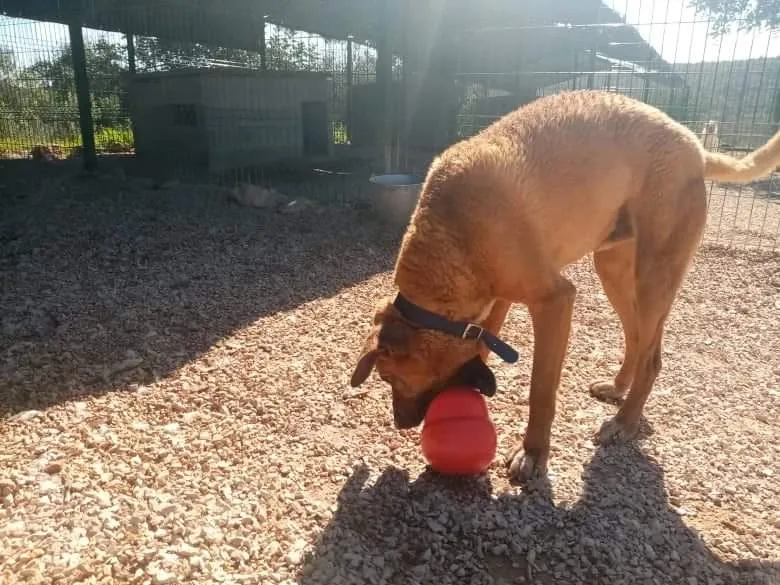 Komo with the KONG Wobbler
Komo with the KONG Wobbler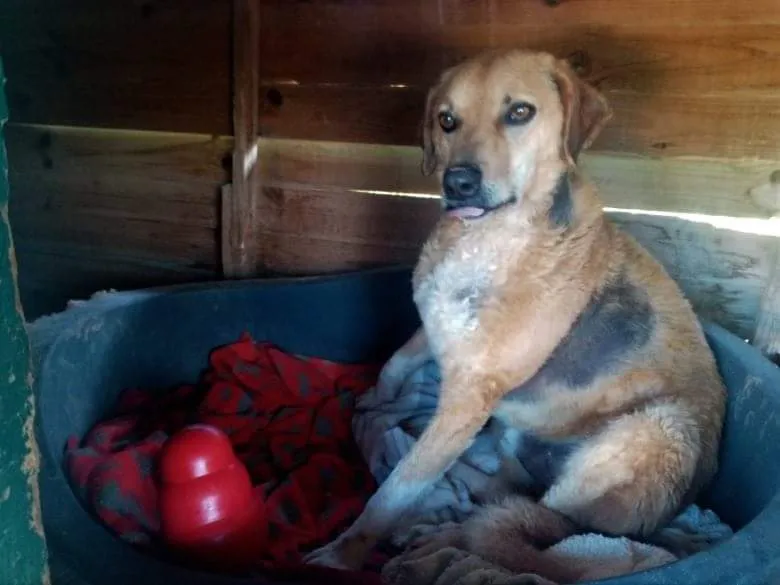 Kilo with the KONG Wobbler
Kilo with the KONG Wobbler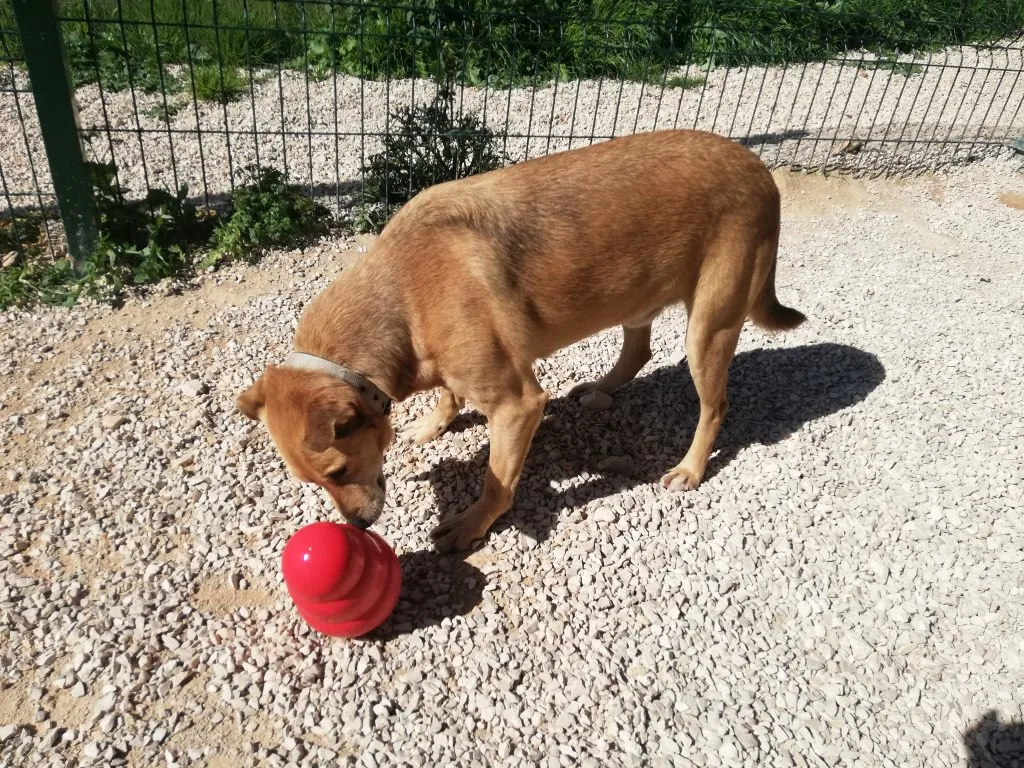 Climber with the KONG Wobbler
Climber with the KONG Wobbler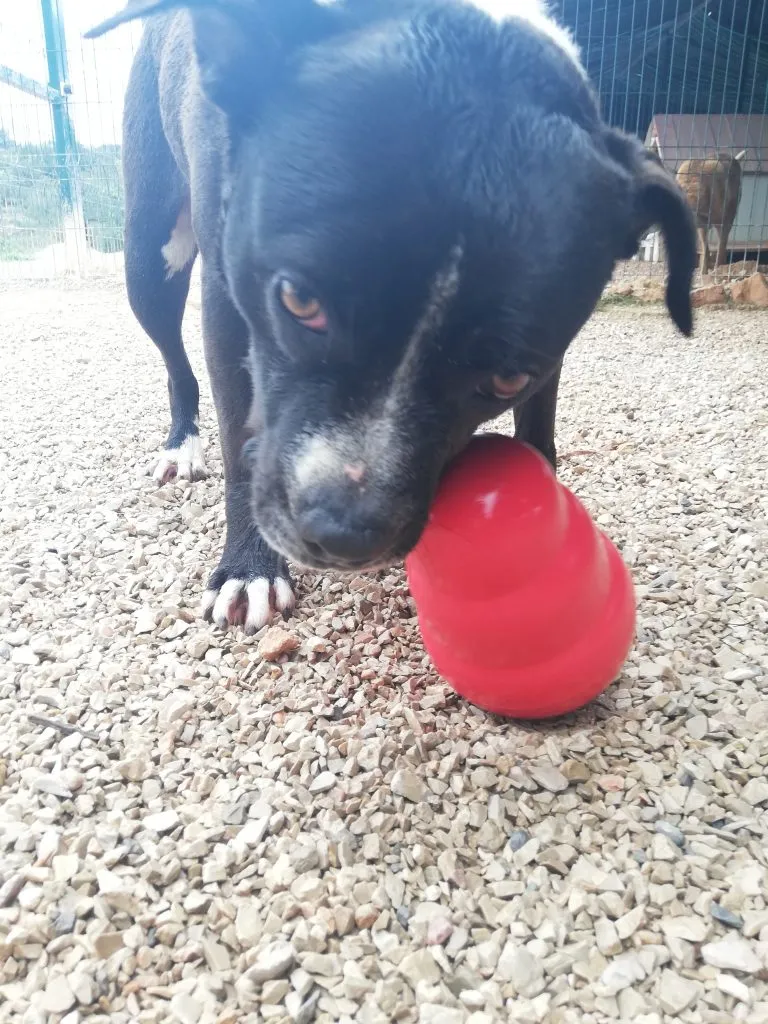 Pebbles with the KONG Wobbler
Pebbles with the KONG Wobbler